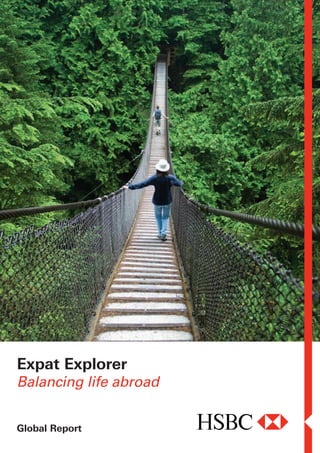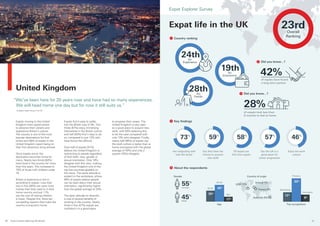The document is a report on expat life from a survey of over 21,000 expats globally. Some key findings from the report include:
- Singapore ranks first overall as the best place for expats to live and work, providing career opportunities and a stable economy. Expats there report an improved quality of life.
- Expats move abroad more for improved quality of life and new challenges rather than just higher salaries. Career progression, learning new skills, and integrating into new cultures are priorities.
- New Zealand ranks first for overall expat experience. Expats there enjoy an improved quality of life and increased physical activity due to the outdoor lifestyle.
- Sweden ranks first for family life, with high quality












































